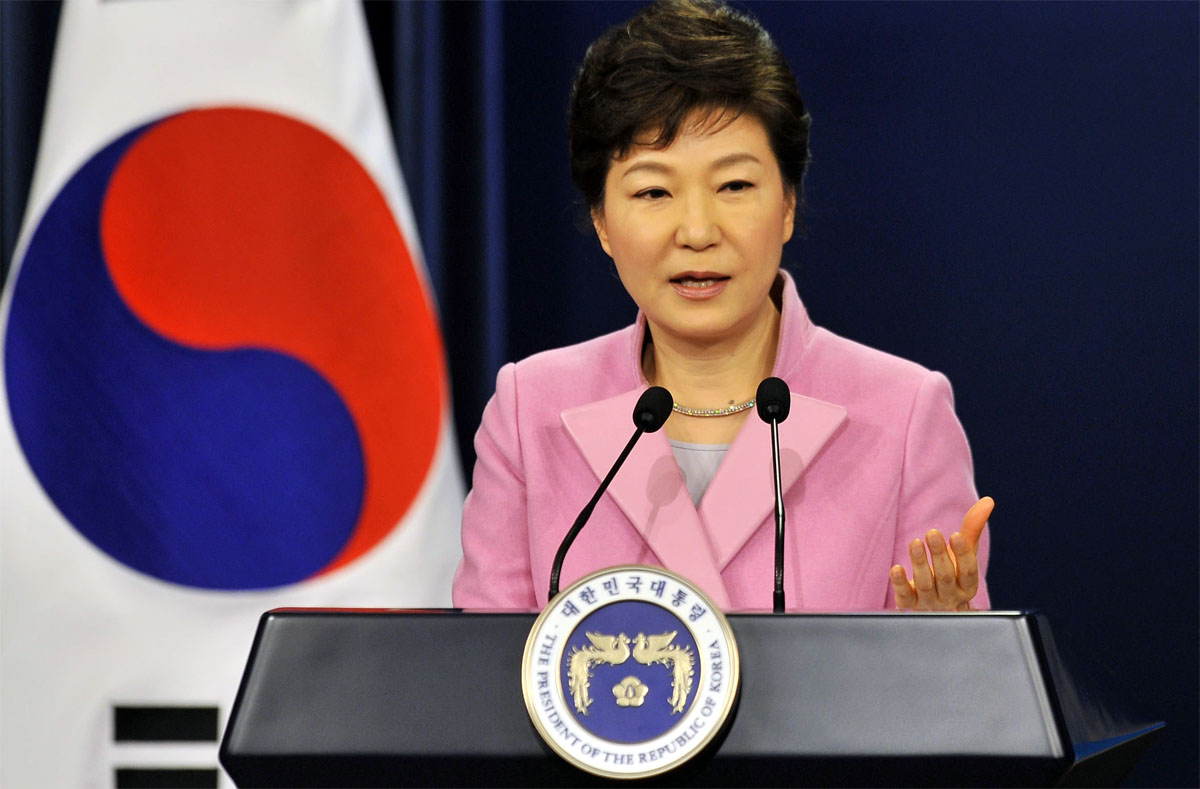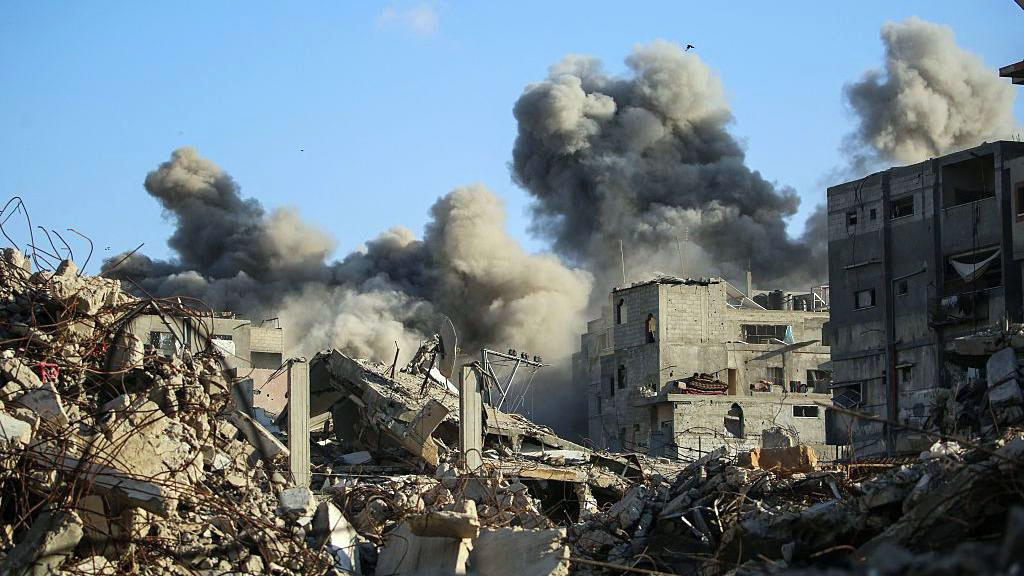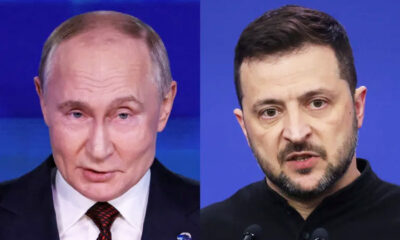International
Russia has seized a fifth of Ukraine – Zelensky

Ukraine’s President Volodymyr Zelensky says that Russian forces have seized 20% of his country’s territory, as Moscow’s invasion nears its 100th day.
Addressing lawmakers in Luxembourg, he added that the front line extended for more than 1,000km (621 miles).
“All combat-ready Russian military formations are involved in this aggression,” he told MPs via videolink.
Mr Zelensky’s address comes as Moscow intensifies attacks on the city of Severodonetsk in the Donbas region.
UK defence officials say that Russian forces have seized control of most of the city and observe that Moscow “continues to make steady local gains, enabled by a heavy concentration of artillery”.
Severodonetsk is the last major city in the region that remains in Kyiv’s hands and Luhansk Governor Serhiy Haidai said Russian forces were trying to break through Ukrainian defences in the city “from all directions”.
Mr Haidai said Moscow’s forces controlled around 80% of the city but Ukrainian troops had “carried out counter-attacks, pushing back the enemy on some streets and taking several prisoners”.
READ ALSO:
- Saudi Arabia launches e-service for umrah pilgrims to get visas in 24 hours
- Oyo APC delegates belong to Bola Tinubu — Senator Folarin
- Treat Fulani Herders Like Niger Delta Militants, Gumi Tells FG
He added that intense street-to-street fighting in the city had hampered evacuations, describing such efforts as “extremely dangerous”.
Some 15,000 civilians remain trapped in Severodonetsk, with many of them taking shelter at the massive Azot chemical plant.
On Wednesday, Mr Zelensky accused Russia of “madness” after its troops allegedly targeted the site during an artillery barrage.
The fighting comes as the mayor of the occupied city of Mariupol accused Russian forces of executing civil servants who have refused to collaborate with the new Moscow-backed city authority.
Vadym Boychenko, who was evacuated from Mariupol before it fell, said dozens of residents were being held at the Olenivka Prison and that he had received reports of locals being tortured by occupying forces. The BBC cannot independently verify these allegations.
Last week an adviser to Mr Boychenko told CNN that at least 22,000 people had been killed during the siege that reduced the port city to rubble.
Elsewhere, Russia wounded five civilians during missile strikes on cities in the Lviv region in western Ukraine, regional head Maksym Kozytskyi said.
And Moscow’s forces shelled the north-eastern Ukrainian city of Kharkiv, killing a woman and wounding a man, according to regional officials.
Western leaders are also stepping up sanctions against key allies of Russian President Vladimir Putin.
International
Canada Opens New Express Entry Draw for Nigerian Workers, Others

Canada Opens New Express Entry Draw for Nigerian Workers, Others
The Government of Canada has announced a new Express Entry draw, offering fresh opportunities for skilled workers from Nigeria and other eligible countries to obtain Canadian permanent residency. The latest draw underscores Canada’s ongoing efforts to attract global talent to meet labour market demands and support economic growth.
According to Immigration, Refugees and Citizenship Canada (IRCC), the new round of invitations targets candidates under the Federal Skilled Worker Program, the Federal Skilled Trades Program, and the Canadian Experience Class, all managed through the Express Entry system. Eligible applicants are ranked through the Comprehensive Ranking System (CRS), with higher scores increasing the likelihood of receiving an Invitation to Apply (ITA) for permanent residency.
READ ALSO:
- South Korea Former President Park Geun-hye Jailed for Life Over Martial Law Attempt
- Hisbah Arrests Nine Muslims for Allegedly Breaking Ramadan Fast in Kano
- Ondo Monarch Killed as Bandits Strike Akure North
This development is particularly significant for Nigerian workers, who have increasingly sought opportunities in Canada due to strong employment prospects, favourable immigration policies, and the country’s high standard of living. Applicants are advised to update profiles, review eligibility criteria, and submit supporting documents promptly, as IRCC draws often target candidates with competitive CRS scores.
The Express Entry system remains a primary pathway for skilled migration, with Canada aiming to meet ambitious immigration targets in 2026. The federal government has emphasized that these draws are part of a broader strategy to boost the Canadian workforce while supporting diversity and inclusion within the country’s labour market.
Canada has historically welcomed Nigerians in sectors including information technology, healthcare, engineering, and skilled trades, and this draw continues to open doors for qualified professionals seeking permanent residence.
Launched in 2015, Express Entry is a points-based immigration system designed to attract highly skilled foreign workers. Applicants are evaluated on education, work experience, language proficiency, and other factors. Candidates with the highest CRS scores are invited to apply for permanent residency, allowing them to live and work anywhere in Canada.
Express Entry draws occur regularly, and eligibility requirements may vary by program and draw. Skilled workers from Nigeria and other countries are encouraged to maintain updated profiles to maximize chances of selection.
Canada Opens New Express Entry Draw for Nigerian Workers, Others
International
South Korea Former President Park Geun-hye Jailed for Life Over Martial Law Attempt

South Korea Former President Park Geun-hye Jailed for Life Over Martial Law Attempt
Former South Korean President Park Geun-hye has been sentenced to life imprisonment for her role in attempting to impose martial law during a political crisis, marking one of the most significant rulings in the country’s modern democratic history.
The Seoul Central District Court found Park guilty of abusing presidential powers, attempting to suppress dissent, and manipulating state security forces for political purposes. Prosecutors argued that her actions threatened the constitutional order and undermined democratic governance.
Park, South Korea’s first female president, was impeached in 2017 following mass protests triggered by corruption scandals and abuse-of-office allegations. The former leader has faced multiple prosecutions over the years, including charges of bribery, influence-peddling, and illegal control of state institutions.
The court emphasized that her attempt to enforce martial law was a severe violation of South Korea’s democratic principles. Legal experts have described the ruling as a clear message that executive overreach will not be tolerated, even at the highest levels of government.
READ ALSO:
- Hisbah Arrests Nine Muslims for Allegedly Breaking Ramadan Fast in Kano
- Ondo Monarch Killed as Bandits Strike Akure North
- LP Crisis Deepens as Abure Faction Rejects Otti’s Reconciliation Call
The sentence comes amid growing international attention on South Korea’s judicial independence. Analysts say the life term reinforces accountability in the country’s political system while serving as a deterrent to future leaders who might consider circumventing democratic institutions. Park may appeal the verdict to the South Korean Supreme Court, prolonging legal proceedings.
Human rights groups have praised the transparent judicial process, noting that fairness and due process remain critical, especially in politically sensitive cases. Meanwhile, the decision has reignited public debate over the balance of power between the presidency and democratic institutions in South Korea.
Background: Park Geun-hye and Martial Law Controversy
Park Geun-hye, daughter of former military ruler Park Chung-hee, governed South Korea from 2013 until her impeachment in 2017. Allegations during her tenure included attempts to deploy martial law powers to suppress opposition and consolidate control over government agencies. These efforts, combined with corruption and bribery scandals, culminated in her removal from office and subsequent criminal trials.
The case has been widely cited as a landmark test of South Korea’s democratic accountability and judicial independence, illustrating the nation’s commitment to prosecuting high-level abuses of power.
South Korea Former President Park Geun-hye Jailed for Life Over Martial Law Attempt
International
Israeli Airstrikes Kill 12 in Gaza as Violence Persists Despite Ceasefire

Israeli Airstrikes Kill 12 in Gaza as Violence Persists Despite Ceasefire
At least 12 Palestinians have been killed in Israeli airstrikes across the Gaza Strip, the territory’s civil defence agency reported on Sunday, marking one of the deadliest days since a fragile ceasefire was implemented. The strikes hit multiple areas, including Jabalia refugee camp in northern Gaza and the southern city of Khan Younis, leaving several others injured.
The Gaza Civil Defence, responsible for rescue and emergency operations under Hamas, said one airstrike struck a tent sheltering displaced civilians in Jabalia, killing at least five people and wounding others. Another strike in Khan Younis also claimed five lives, while additional shelling in Beit Lahia and western Gaza City caused further casualties. Local authorities said most victims were civilians, including families displaced by previous attacks.
READ ALSO:
- FBI Probe Continues as Ex‑Church Minister Who Confessed to Child Abuse Remains Free
- Presidency Dismisses El-Rufai’s Thallium Claim as Diversion From N432bn Probe
- Ghana Moves to Extradite Russian Man Over Secret Sex Video Scandal
The Israel Defence Forces (IDF) said its operations targeted armed militants and underground infrastructure allegedly used to launch attacks, describing the strikes as a response to ceasefire violations. Palestinian authorities condemned the strikes as a massacre and a breach of the truce, while international observers expressed concern over the continuing civilian casualties.
Since the U.S.-brokered ceasefire in October 2023, tensions in Gaza have remained high, with sporadic clashes and violations on both sides. Gaza health authorities report that over 600 Palestinians have been killed and more than 1,600 injured by Israeli strikes since the truce took effect. Humanitarian organisations warn that repeated airstrikes have devastated infrastructure, leaving displaced families vulnerable and worsening living conditions.
International observers note that the ongoing violence threatens reconstruction efforts and regional stability. With limited access for media and aid agencies, verifying casualty figures remains difficult, though reports consistently highlight the severe impact on civilians and displaced families.
The Gaza civil defence called on residents to stay vigilant, avoid military targets, and seek safety as authorities continue to respond to emergency situations across the territory. The situation underscores the fragility of the ceasefire and the urgent need for renewed diplomatic efforts to prevent further civilian casualties.
Israeli Airstrikes Kill 12 in Gaza as Violence Persists Despite Ceasefire
-

 News2 days ago
News2 days agoSaudi Arabia Confirms Sighting of Ramadan Crescent, Fasting Begins Wednesday
-

 metro2 days ago
metro2 days agoLagos Woman Shares Ordeal After Alleged Rape, Sparks Nationwide Outcry
-

 News2 days ago
News2 days agoRamadan Begins in Nigeria as Sultan Confirms Crescent Sighting
-

 metro2 days ago
metro2 days agoSeven Killed in Horrific Crash at Ota Toll Gate
-

 International10 hours ago
International10 hours agoCanada Opens New Express Entry Draw for Nigerian Workers, Others
-

 metro3 days ago
metro3 days agoDeadlock at National Assembly as House Snubs Electoral Act Bill Meeting on E-Transmission Clause
-

 News1 day ago
News1 day agoKorope Drivers Shut Down Lekki–Epe Expressway Over Lagos Ban (Video)
-

 Health1 day ago
Health1 day agoRamadan Health Tips: Six Ways to Stay Hydrated While Fasting















